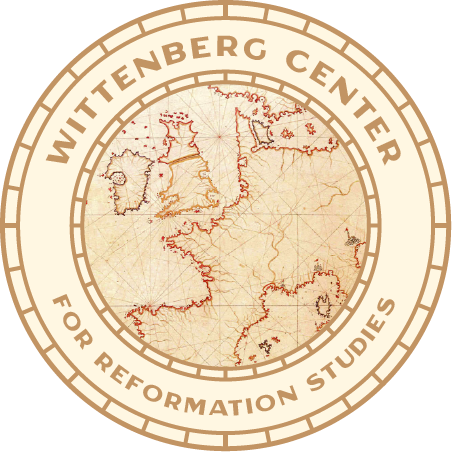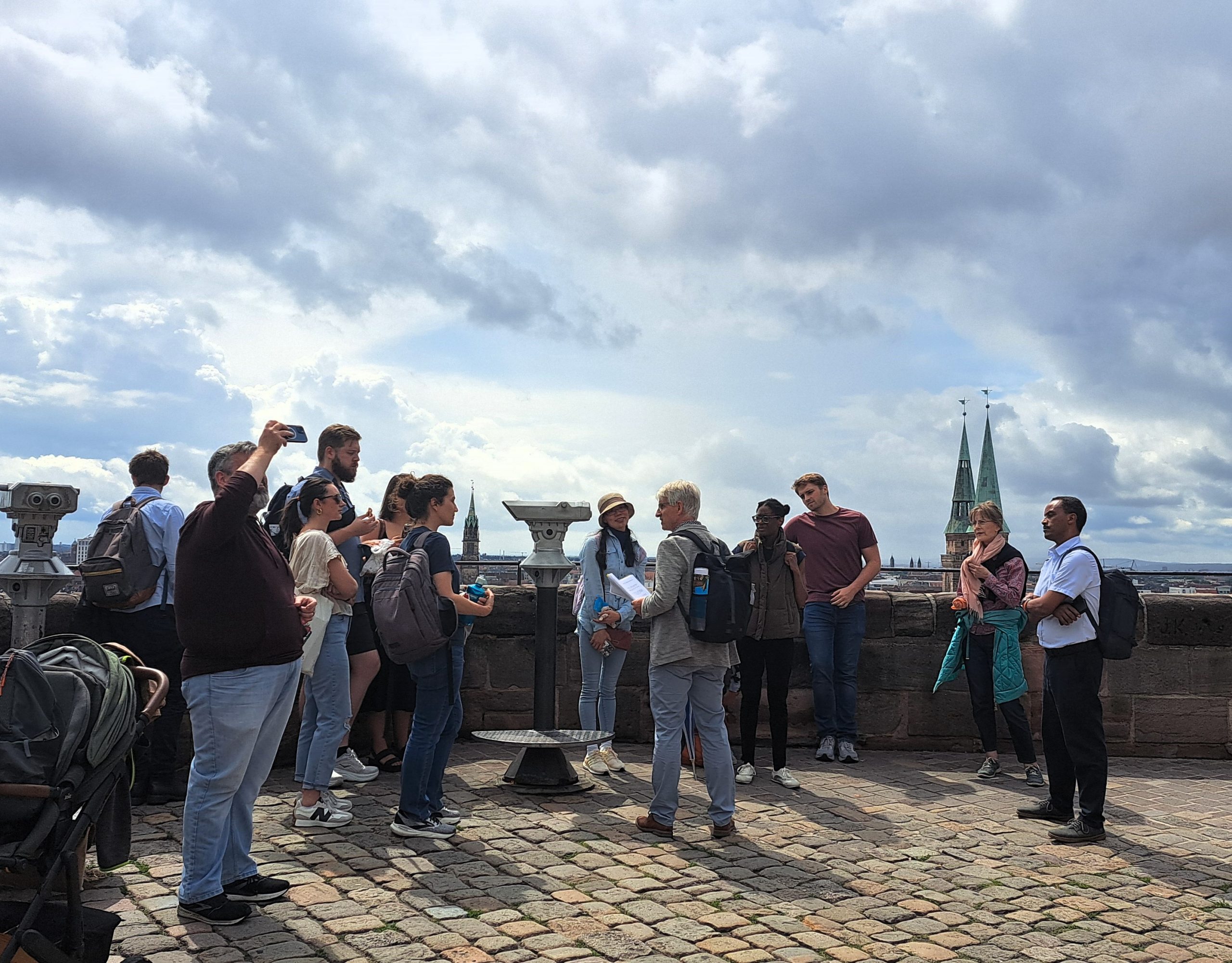On Monday morning, Professor Robert Kolb of Concordia Seminary outlined the emergence of Lutheran and Reformed denominational churches in the mid-16th century, comparing the theological and spiritual profile of the Wittenberg and Zurich Reformations and their ealry modern heirs. In the afternoon, Professor Bruce Gordon of Yale University presented a sixteenth century English translation of Zwingli’s interpretation of the Passion narrative. He analyzed it primarily with regard to the spirituality of the Zurich Reformation, an aspect of Zwingli’s work that has not received sufficient appreciation in research.
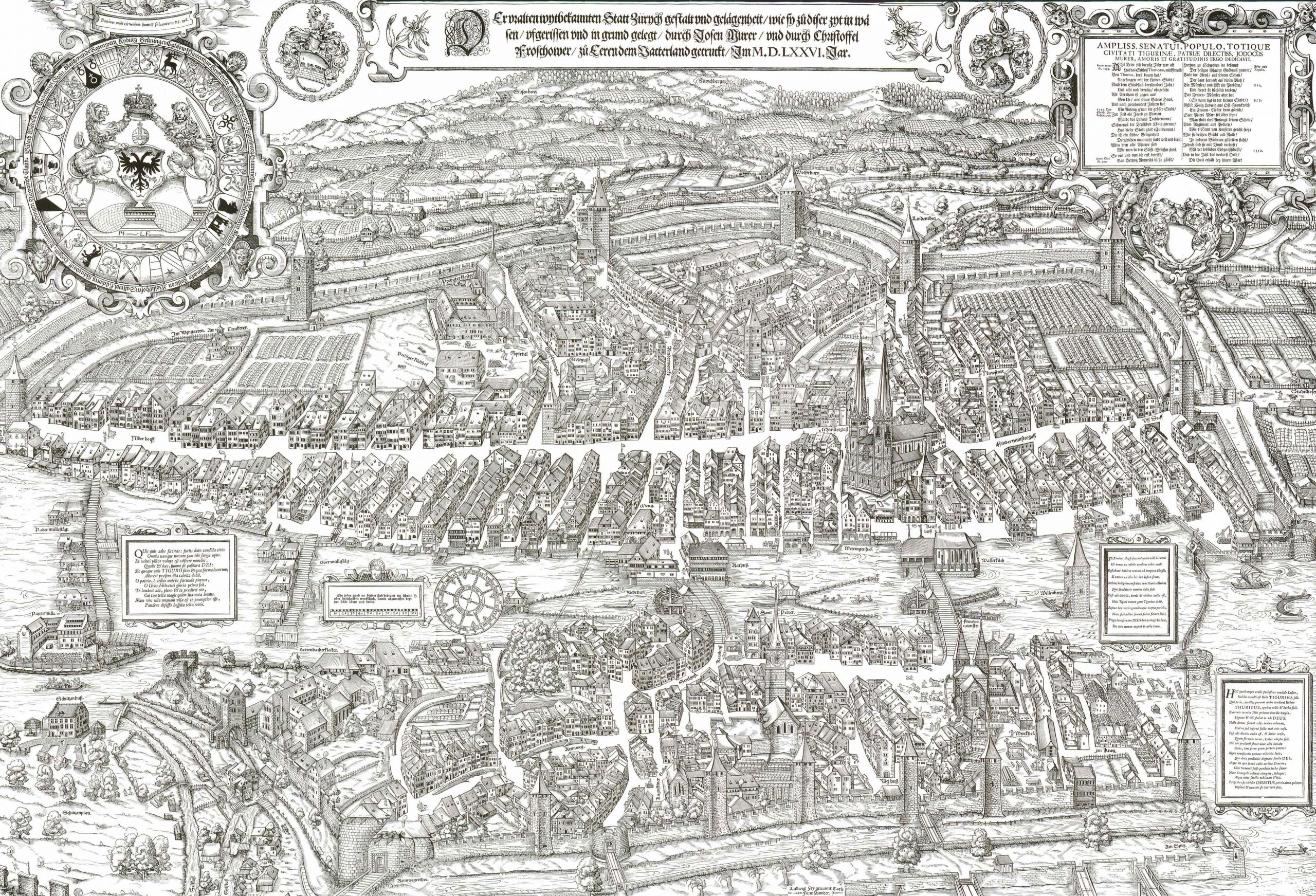
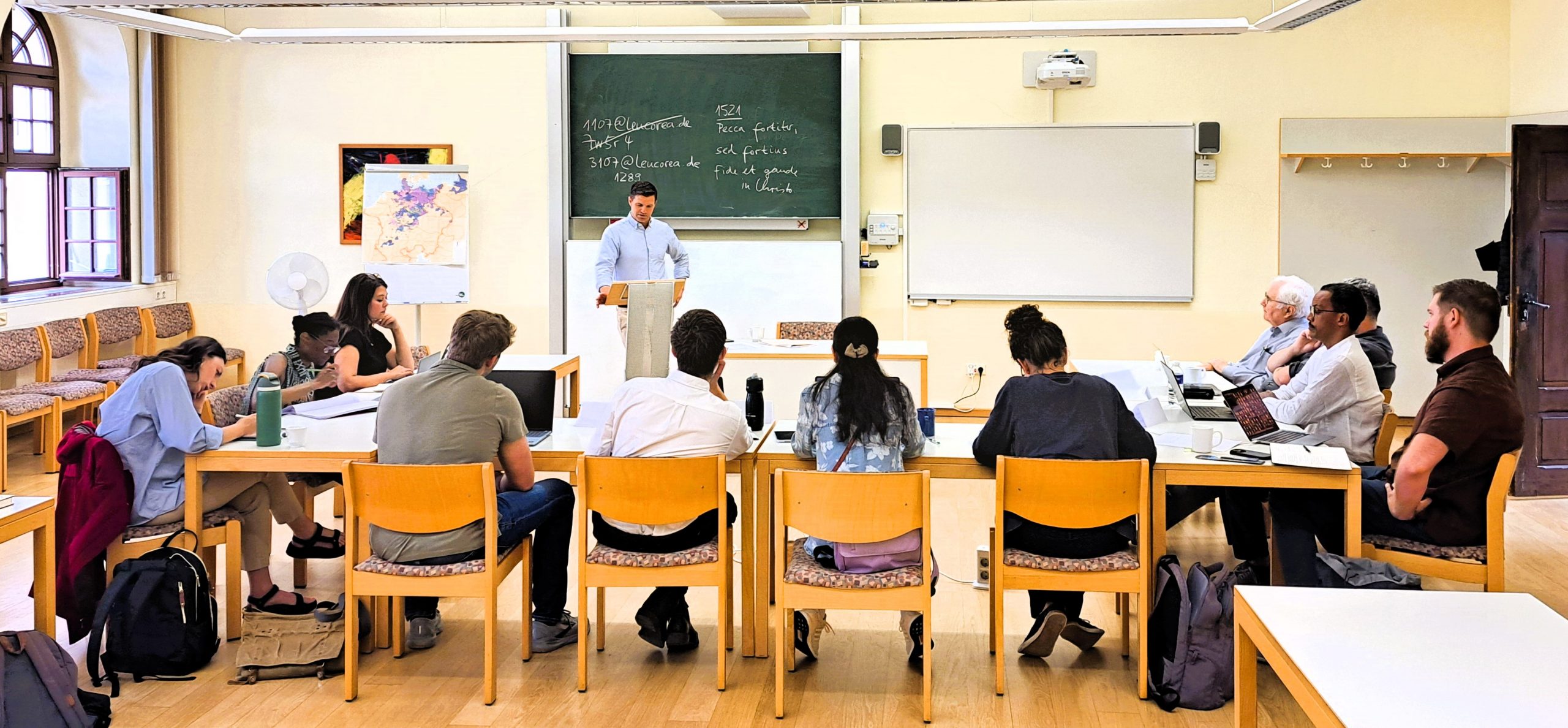
On Tuesday, the focus was on the early influences of the continental Reformation on England. This included William Tyndale’s 1526 translation of the New Testament, particularly the preface to the Epistle to the Romans, as well as the work of Robert Barnes, especially his confession at his 1540 execution. Following the study day on Wednesday, Jonathan Linebaugh (Samford University) began the discussion on the significance of the law on Thursday. The group then examined Luther’s Disputatio de homine, a foundational Reformation text on the relationship between justification, faith, and law.
From Friday to Sunday, the group went on its second weekend excursion. On Friday, they traveled to Nuremberg, where Dr. Matthias Deuschle of the University of Tübingen introduced the Nuremberg Reformation and explained its significance for England. The group then worked on sections of the 1525 advice of the Nuremberg preachers for the city council (Großer Nürnberger Ratschlag) and Andrew Osiander’s doctrine of justification. They visited the graphic reading room of the Germanic National Museum, where they immersed themselves in sixteenth century woodcuts and copperplate engravings related to the Reformation in Strasbourg and Zurich. These included Jos Murer’s large-format map of Zurich.
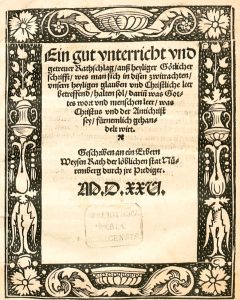
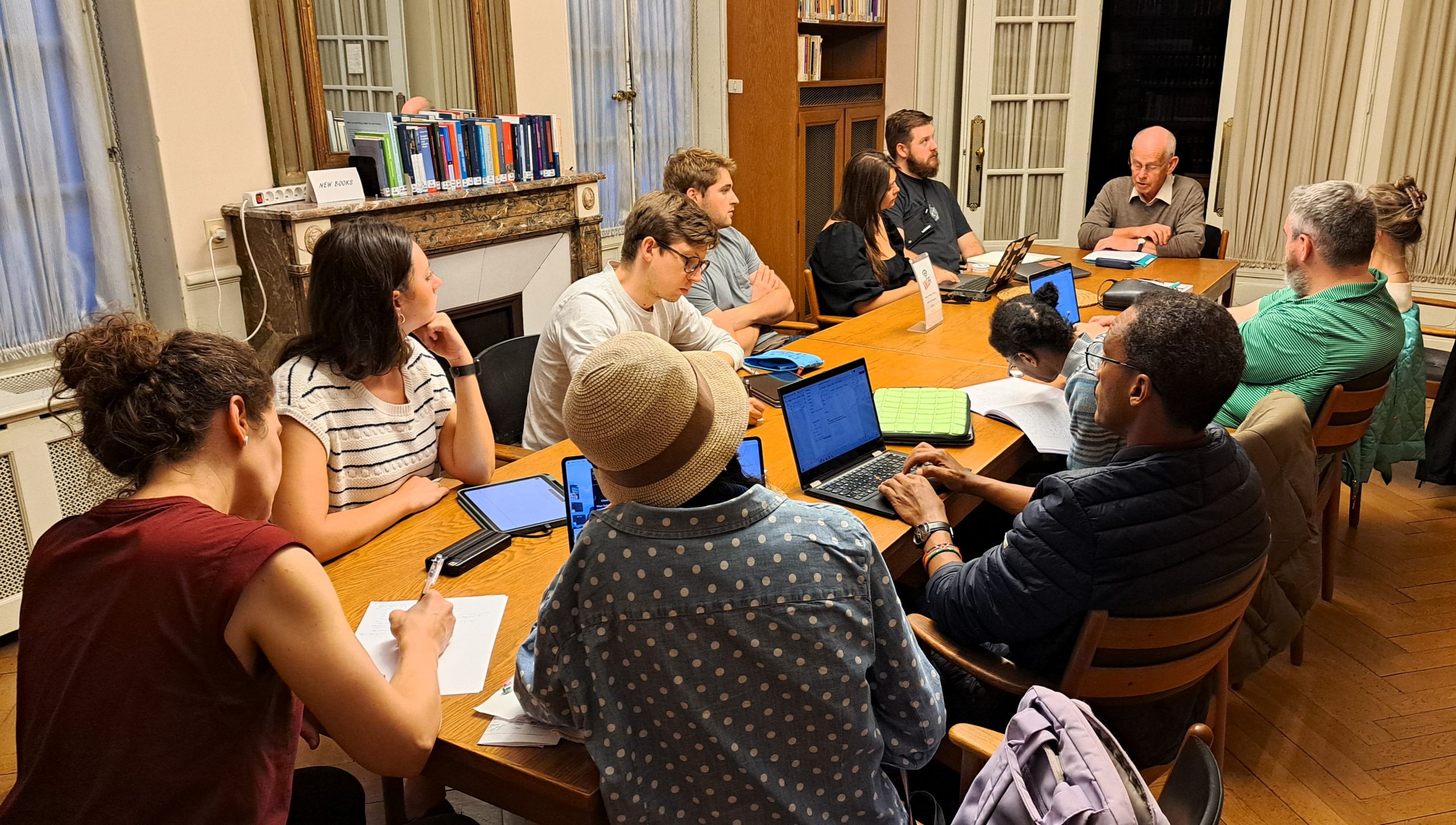
On Saturday, the group traveled to Strasbourg, where Professor André Birmelé of the University of Strasbourg discussed the significance of the Strasbourg Reformation for England and presented the Ecumenical Research Institute of the Lutheran World Federation. At both locations, the group enjoyed a guided tour focusing on church history and had the opportunity to explore the cities on their own.

Woodcut with the leading politicians and theologians of the Wittenberg Reformation with sixteenth century Nuremberg in the background.
